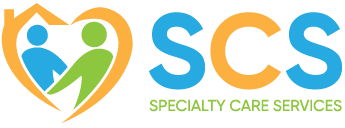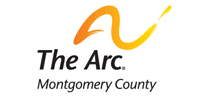Tube Feeding & Enteral Nutrition Home Care
Maryland, Washington DC, and Northern Virginia
24/7 Nurse Availability
Free In-Home Assessments
Over 25 Years of Experience
Hours:
Request Call Back
Hero Request Form
Thank you for contacting us.
We will get back to you as soon as possible.
Please try again later.
New or Changing Tube? Post-Hospital/Post-Surgical Support at Home
If tube feeding feels overwhelming, our nurse & caregiver team brings calm, step-by-step support to your home! We create a custom plan of care and tailor hours from occasional visits to 24/7 care depending on your needs.
If you or a loved one relies on a G-tube, PEG, PEJ, or J-tube, safe day-to-day feeding at home can feel overwhelming - especially after a new placement, a change in formula, or when other health issues are in the mix.
Our in-home nursing & care brings skilled enteral support to you: helping you or your loved one with daily tube feeding to feel safe, comfortable, and healthy at home.
Who We Serve
Most of our clients and their families utilize our care because they’re struggling with:
- Additional mental or physical health conditions that prevent them from performing tube-feeding independently, including:
- Stroke
- Parkinson’s
- Dementia/Alzheimer’s
- Cancer (especially head/neck)
- COPD
- Heart Failure
- Chronic Kidney Disease
- Severe Diabetes or Neuropathy
- Multiple Sclerosis (MS)
- Paralysis
- Cerebral Palsy
- A new PEG/PEJ/G-tube tube has recently been recommended.
- Recent changes to their care plan
- Complex regimens, such as frequent bolus feeds, overnight pump feeds, venting/med-via-tube schedules, or flush protocols.
- Stoma/G-site issues, including granulation tissue, leakage, skin breakdown, or infections.
- Limited family/caregiver bandwidth
- Provider coordination is needed with multiple specialists, dietitians/nutritionists, or frequent medical changes.
Many clients who rely on tube feeding receive their care at home, with support from family caregivers and in-home professionals, with the number of clients utilizing home care increasing regularly. [1]
How We Provide Care
- Feeding administration: pump or bolus feeds, correct formula handling, water flushes before/after feeds, and meds to prevent clogging.
- Tube & stoma care: daily site assessment & cleaning with infection and skin-integrity monitoring.
- Medication management, reminders, and administration: appropriate form/technique to avoid occlusion.
- Complication prevention & response: aspiration risk reduction, managing diarrhea/constipation, clogging, dislodgement, or buried-bumper awareness.
- Ongoing monitoring: weight/hydration, tolerance, labs & bloodwork, and periodic formula/volume adjustment.
Personal Home Care (Home-Health Aides):
- Bathing, Dressing, and Grooming
- Companionship Care
- Fall-Prevention
- Light Housekeeping and Laundry
- Meal Preparation & Feeding Assistance
- Post-Rehab Exercises
- Errands Services & Shopping Assistance
- Transportation & Appointment Escort for follow-up procedures or medical check-ins
Respite Care
- Short-term relief for family caregivers
- Care provided in the home so loved ones can rest, travel, or attend to other responsibilities
- Flexible scheduling to meet urgent or planned needs
24/7 Care
- Around-the-clock home support for individuals with high or complex care needs
- Overnight monitoring to ensure safety, comfort, and prompt response to needs
- Continuous personal care, companion care, and nursing oversight as required
What Areas We Serve
We provide home care in Montgomery County, MD, Prince George’s County, MD, Howard County, MD, Frederick County, MD, Washington, DC, Fairfax County, VA, and Arlington County, VA.
Here are the estimated numbers of residents who are currently utilizing tube feeding and home enteral nutrition in the areas we serve:
- Bullet text
- Bullet text
- Bullet text
- Bullet text
- Bullet text
- Bullet text
- Bullet text
- Bullet text
- Bullet text
- Bullet text
| Counties/Jurisdiction | Estimated Population [4] | Estimated people on Home Enteral Nutrition (HEN |
|---|---|---|
| Montgomery County, MD | 1,082,273 | 1,499 |
| Prince George’s County, MD | 966,629 | 1,339 |
| Howard County, MD | 339,668 | 470 |
| Frederick County, MD | 299,317 | 415 |
| Washington, DC | 702,250 | 973 |
| Fairfax County, VA | 1,160,925 | 1,608 |
| Arlington County, VA | 239,807 | 332 |
| Totals | 4,790,869 | 6,636 |
There are thousands of individuals in the areas we serve who currently utilize tube feeding, with a large portion of them relying on family members or caregivers to support them. We provide the essential care and education to individuals and their families who require home enteral nutrition (HEN) so that they can live safe, comfortable, and healthy lives at home.
Professionals & Providers We Collaborate With or Recommend
- Primary Care Providers
- Gastroenterology
- Oncologists
- Neurologists
- Palliative/Hospice
- Surgeons & Surgery Centers
- Interventional Radiologists
- Registered Dietitians (RDNs) with Nutrition Support Team oversight when available.
- Speech-Language Pathologists (SLPs)
- Wound/ostomy/skin specialists
- Pharmacists
- Home Medical Equipment/DME suppliers
How Our Process Works – Step-by-Step
1. Start with a thorough nursing assessment.
Our nurses review your physician's orders or discharge instructions, then visit your home to establish a baseline. We check your medical history, medications, drains or lines, equipment, current care processes, and overall vitals with a red-flag screen for health complications.
2. We develop your personalized care plan
Your nurse creates a written care plan designed to keep healing on track. This may include wound/incision care routines, pain and medication schedules, therapy/exercise carryover, nutrition and hydration goals, and safety precautions for your home environment.
3. Care team matched to your needs.
We match you with the right mix of skilled nurses and home health aides, scheduled to fit your recovery and family support.
4. Consistent, reliable care delivery
Your team follows the care plan every visit, whether that means nursing, personal care assistance, medication management, or around-the-clock support to make recovery steady and predictable.
5. Ongoing nurse check-ins and updates
Your RN checks in regularly to review your progress, update the care plan, coordinate with your physicians and therapists, and escalate quickly if new symptoms or red flags appear.
Sources
- Orphanet Journal of Rare Diseases.
The prevalence of home parenteral and enteral nutrition in Europe: advancing policy and practice.
https://europepmc.org/article/med/28715295
Accessed September 2025. - National Center for Biotechnology Information (NCBI).
Enteral Nutrition Overview.
https://www.ncbi.nlm.nih.gov
Accessed September 2025. - American Society for Parenteral and Enteral Nutrition (ASPEN).
Clinical Guidelines and Resources for Enteral Nutrition.
https://www.nutritioncare.org
Accessed September 2025. - U.S. Census Bureau.
QuickFacts: U.S. Counties and Washington, DC.
https://www.census.gov/quickfacts
Accessed September 2025. - PubMed.
Home Enteral Nutrition Prevalence in the United States.
https://pubmed.ncbi.nlm.nih.gov
Accessed September 2025.
What is the difference between home enteral nutrition (HEN) and tube feeding?
Tube Feeding is a general term that can be used when food or medication is given through a feeding tube. Home enteral nutrition (HEN) is a structured and ongoing medical therapy that requires coordination between multiple healthcare providers.
What forms of payment do you accept for care?
We accept Medicaid, long-term care insurance, and private pay for in-home nursing and home health aide services.
How soon after hospital discharge can in-home nursing for tube feeding start?
We can start care within 24-48 hours after contacting us.
Is in-home tube feeding care available 24/7, including overnight monitoring?
Yes - we provide overnight care for clients who have sleeping disturbances or late-night medical challenges, respite care for families that want to use care on an occasional basis, or 24/7 care for individuals and families who require full-time support.
Can in-home tube feeding care be combined with other services, like wound care or tracheostomy care?
Yes, many of our clients utilize a combination of our in-home nursing and personal home care services together.
Do I need a nurse or just an aide?
If feeds, meds, or site care are new or problematic, start with RN oversight. If stable, an aide can handle routine tasks under an RN plan.

CP #1 Headline
CP #1 Body
CP #1 CTA Lead-in
Not valid with any other offers or promotions. Restrictions apply.
Must mention this coupon at the time of scheduling.
Reviews



